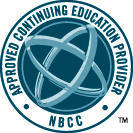- Join Us!
- Members
- Find a Counselor
- Career & Training
- Convention
- Consultation
- Supervision
- Publications
CE Workshops
|
Clinical Work with Behavioral Addictions: A Primer
Friday, September 17, 2021, 10:00 AM - 11:30 AM EDT
Category: LPCA Sponsored NBCC approved
2021 National Recovery Month theme “Recovery is For Everyone: Every Person, Every Family, Every Community,” reminds people in recovery and those who support them that no one is alone in the journey through recovery. Everyone's journey is different, but we are all in this together. As part of our recognition of National Recovery Month, LPCA presents: Clinical Work with Behavioral Addictions: A Primer This is a live, synchronous webinar for 1.5 Core Hours. Behavioral addictions (e.g., gambling, gaming, sex, shopping, pornography) are rewarding behaviors that become compulsive, out of control, continue despite negative consequences, and induce cravings or mental preoccupation (ASAM, 2019; APA, 2013; Griffiths, 2005; Kardefelt-Winther et al., 2017). Like drugs of abuse, potentially addictive behaviors activate reward circuitry in the brain (APA, 2013; Karim & Chaudhri, 2012; Wise & Koob, 2014; Wise & Robble, 2020) and are both positively and negatively reinforcing (Goodman, 2001). Among vulnerable individuals (e.g., those with genetic predispositions, a history of trauma, specific mental health concerns, or exposure to social modeling), rewarding behaviors can become the primary means of emotion regulation and lead to detrimental outcomes. In light of the accessibility, affordability, and frequency of potentially addictive behaviors, counselors in all settings (e.g., schools, college counseling centers, community agencies, hospitals, private practice) should be equipped to recognize and respond to behavioral addictions. In this presentation, attendees will learn how to conceptualize behavioral addictions using a public health model, be able to recognize behavioral addictions in their clinical work, and become knowledgeable of treatment considerations for several prominent behavioral addictions. The presenter will describe relevant neuroscience related to addictive behaviors, updates to diagnostic manuals, and 12-step programs specific to behavioral addictions. Learning objectives: 1. Attendees will be able to synthesize current research and neuroscience related to the prevalence and nature of behavioral addictions. 2. Attendees will be able to conceptualize behavioral addictions using a public health model and describe two methods for recognizing behavioral addictions in clinical work. 3. Attendees will be able to discuss treatment considerations for internet gaming addiction, sex and pornography addiction, food addiction, and gambling addiction.
This is an LPCA Approved Workshop |
 Prev Month
Prev Month View Month
View Month Search
Search Go to Month
Go to Month Next Month
Next Month Export Event
Export Event 


